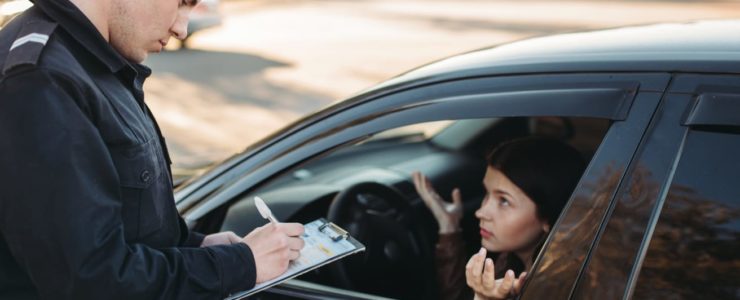
As you know, there are many unique and exquisite things that set each of our 50 states apart, whether it be landmarks, landscape, weather or local attractions. In the same manner, driving in each state will expose you to differing rules and regulations drivers must follow. Not only will the attractions you planned to visit make your trip unforgettable, but the driving may be an adventure in and of itself and sadly, not always a positive one. Getting a ticket can be unsettling, especially if you are in uncharted territories, visiting family or friends out of town or embarking on a long road trip. The last thing you want is to be stopped and ticketed when you’re following a tight schedule. Whether it be a speeding ticket or distracted driving ticket, it will put a wrench in your plans.
As more people want to hit the road and get out of town, the chances for getting a ticket out of the city or state increases. In fact, this is much more common than people realize. When driving in a different city or state, you must adapt to differing traffic laws, speed limits and parking regulations. All it takes is for you to be hitting the highway in a new state and not realize that their speed limits are much higher or lower than you’re used to!
If you’ve unfortunately received a speeding or parking ticket in a different state than the one you reside in, you may have a lot of questions. What do I do, where do I go to handle it, and most importantly, do I need to pay it? We’re here to tackle some of the most common questions and concerns drivers have about getting a ticket in a different city or state.
Do I have to pay the ticket? Does it need to be taken care of before I leave the state?
For any instance you receive a ticket, you’re responsible for paying it in full. If you choose to forgo paying your ticket, there may be ramifications and points issued on your license, depending on your state’s rules. Contesting your out-of-state ticket may be an option, but it is much more difficult to contest the ticket if it is not a place you live or visit often. No matter which state you live in, if you accumulate unpaid tickets in other states, they will suspend your driver’s license. No matter where you’re from or where you’re going, paying for the ticket issued admits you’re guilty to the violation.
What do I do if I want to contest the traffic ticket I received out-of-state?
When you return to your home city, you will need to go to court to contest the ticket, if you choose to contest rather than paying the fine. This method may be effective in having points removed from your license, an out-of-state ticket removed from your record, or fees reduced or eliminated completely, if the officer who issued the ticket does not appear. In many cases, you must return to the county in which the ticket was issued to fully contest the ticket. For many people, they choose to pay the ticket instead of contesting an out-of-state ticket as travel to the appropriate county may be more expensive than just paying the ticket initially. If you want to contest an out-of-state traffic ticket, but don’t want to return to that county to do so, you can hire a lawyer to appear in court on your behalf. Your lawyer will be your representative and make any arguments needed to show why you should not have received the ticket. Once again, this method may be just as much, if not more, than paying the initial ticket fee.
Will I get points on my license for a ticket received out-of-state?
If you get a ticket in another state, in most cases, the notice and information will be sent to the state that issued your driver’s license. Each state, however, will handle the out-of-state ticket and points received differently. For example, Nevada opts not to issue points for tickets and violations received out-of-state, but does record and recognize it. Some states may issue points, while others may not place it on your record at all. It is best to check with your state and their regulations to know what to expect as far as points received for traffic violations go.
Will my insurance cost increase if I received an out-of-state ticket?
Fluctuations in insurance costs depend on a variety of factors. This will primarily depend on if your state records violations or issues points on your driver’s license for tickets received in other states. This may also be influenced by the severity of your violation and if your insurance company chooses to charge increases after a single violation or if it takes multiple violations for rates to increase.
Although getting a ticket while traveling in a different city or state can be unsettling, it isn’t a reason to panic or freak out. There are many options for you to consider when taking care of the ticket, many of which are the same as receiving a ticket in your home state. While you may be required to pay a fee or receive points on your license, there are always opportunities to pay for the ticket and attend traffic school to remove points.
While getting a ticket while driving in a different city or state is very common, mitigating that risk by following proper rules and regulations or having a team like Ticket Busters to turn to is ideal. Be alert and observant to all driving or parking signage and changes to speed limits, especially when transitioning from the highway to surface streets. Pay extra attention to your surroundings and the flow of traffic. Be mindful of where and how you are driving. If you have a co-pilot in the car, ask them to keep an eye out for any speed limit changes or parking regulations, as you stop.


